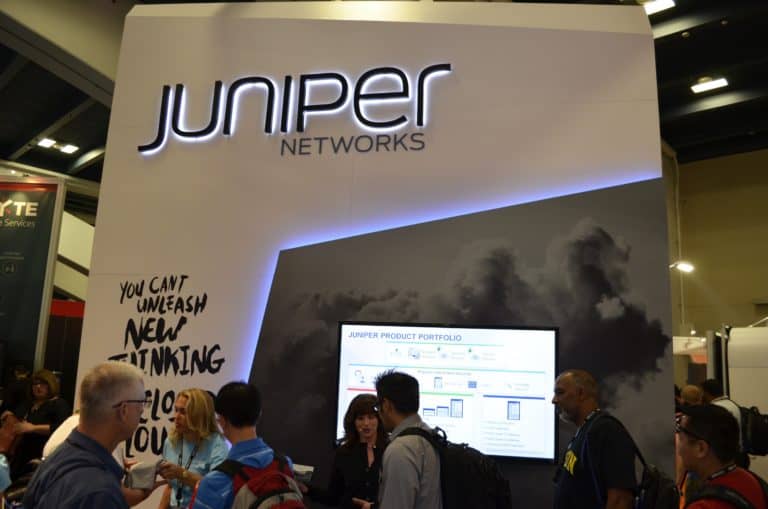Juniper Networks has launched version 2,2 of its multicloud container platform Juke. With the functionality now added, customers can more easily deploy containers with persistent storage, network and monitoring functionality between multiple multi-client environments. This allows developers to focus more on the actual development of applications and less on operational matters.
The improvements to the multicloud container platform, particularly in the area of storage, include volume snapshots and clone management. Furthermore, the platform now offers improved integration with the Kubernetes container platform. This makes it possible to run a single Kubernetes cluster both on-premise and in multiple cloud environments. This allows customers to better optimize the use of resources according to the supplier.
The now added storage possibility in version 2.2 of Juke also ensures that the network and server orchestration possibilities of Juniper’s Contrail multicolloud product are further complemented.
Focus on application development in DevOps
With Juke, a product of HTBASE, acquired by the network and cloud specialist at the end of 2018, DevOps specialists can focus on developing stateful applications for multi-client environments, without having to pay attention to the management of the storage and variable details. The platform also makes it easier to manage storage within networks.
The platform is a software-defined file system that automatically and latency-consciously covers all on-premise and multi-client resources, especially those within AWS and the Google Cloud Platform. It provides persistent storage as simple block devices to containers. In addition, it also automates all operational actions within a DevOps process. This allows developers to better concentrate on their core task: developing applications.
Police management as well
In addition, the platform allows network and software specialists to create policies for both servers and storage infrastructure so that this infrastructure meets the requirements. These requirements include performance, location, costs, reliability and compliance regulations for, among others, the GDPR.
This news article was automatically translated from Dutch to give Techzine.eu a head start. All news articles after September 1, 2019 are written in native English and NOT translated. All our background stories are written in native English as well. For more information read our launch article.